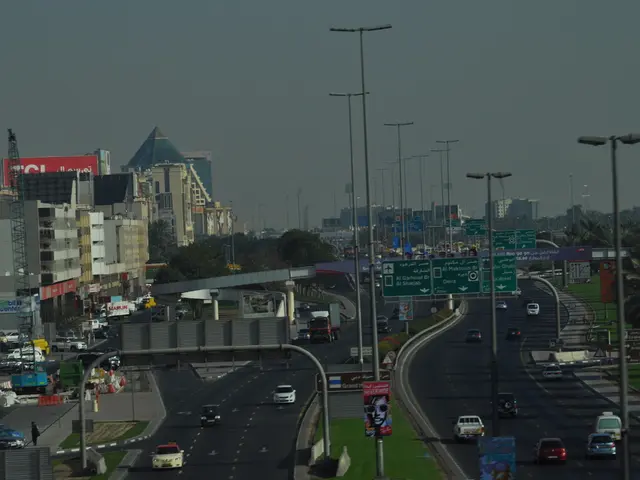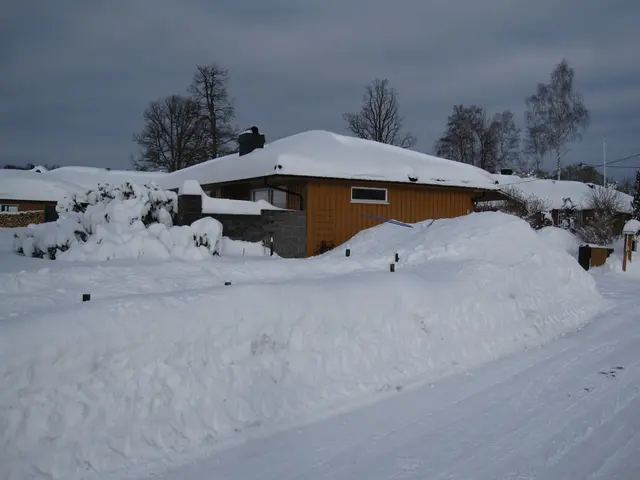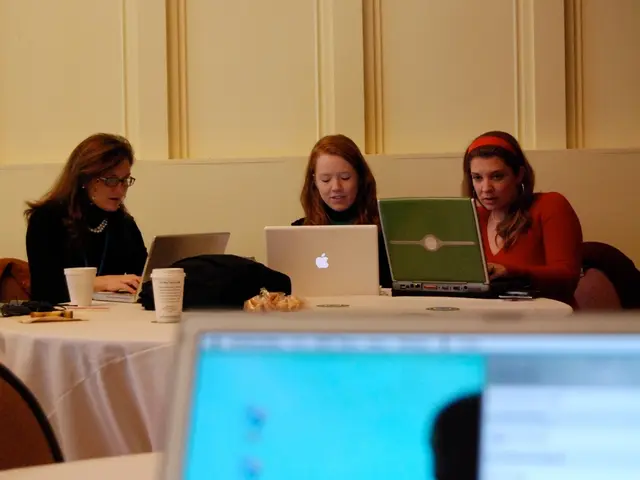Customs and immigration checks remain active as per usual. - Customs and immigration checks remain in place as usual
The freshly minted federal government shows no signs of letting up on border control measures, with no discernible changes on the first day. "We're doing our thing as we always have," asserted Stefan Döhn, the spokeman for the Federal Police Inspectorate Trier, at a border checkpoint on the A64 from Luxembourg. "We haven't received any new directives yet. We're carrying on as usual."
Alexander Dobrindt, the new Interior Minister from the CSU party, had declared his intention of reinforcing deportations of migrants and stepping up checks at Germany's external borders soon after assuming office. Initial decisions were to be made today.
Border checks have been reinstated at all external border points in Germany since mid-September 2024. In February, the federal government decided to prolong the border controls at all external borders by another six months, extending them until September 15.
Illegal Migration: A Frontline Battle
At the control post in Trier, federal police officers routinely flag vehicles for check. Inside a sizeable steel tent at the control point, the officers scrutinize the drivers' documents. The vast majority are allowed to proceed. Around 500 vehicles are checked there daily.
The federal police focus on individuals attempting to enter illegally, human smugglers, and fugitives wanted on warrants. Döhn reported frequent successes and revealed new data.
Nearly 2,700 Illegal Crossings
Overall, 2,661 illegal crossings were recorded in the Rhineland-Palatinate and Saarland states during the reintroduced border checks, up until the end of March. Of these, 1,694 originated from France, 843 from Luxembourg, and 124 from Belgium, according to Police information. A total of 1,166 individuals were sent back to France, 513 to Luxembourg, and 73 to Belgium. A total of 56 human smugglers were apprehended during the controls. The figures provided by the Police are preliminary and could experience minor adjustments later. Döhn described the controls as "meaningful and critically necessary."
Future Plans: Uncertain but Ready
The federal government is expected to issue orders soon. "Once we get the order, we'll assess our subsequent actions," Döhn shared. It remains unclear if there will be further transitions or an increase in manpower. However, Döhn assured, "We're ready and can implement any order from one day to the next."
The controls are "time-consuming, requiring significant personnel resources, but workable." The federal police anticipate support from other units and inspections.
Luxembourg Lodges a Protest
Border checks, like the ones in Trier, are not provided for within the Schengen area. There is still a stationary control point to Belgium on the A60 in Rhineland-Palatinate. In Saarland, entry traffic from Luxembourg is monitored at Perl, and in Saarbrücken from France.
There has been criticism in the region. Commuters who work in Luxembourg from Germany are frustrated when they are held up during their commute home due to the checks. More than 50,000 German workers cross the border to work in Luxembourg. Luxembourg lodged a protest against the extension of the controls with the EU Commission in February.
- Border Control
- Migrant Crisis
- Germany
- Border Crossings
- Police
- CSU
- Asylum Seekers
- Luxembourg
Insights:
- Order to Tighten Border Controls: Yes, Federal Interior Minister Alexander Dobrindt has issued an order to tighten border controls in Germany. This decision forms part of the new government's measures to manage illegal migration, which may involve increased police presence at the borders and turning away some asylum seekers.
- Current Situation: The German government plans to deploy additional police officers, with estimates suggesting an increase of 3,000 officers to support border control efforts. This move aligns with political promises made by Chancellor Friedrich Merz and represents a hard-line stance on immigration issues in Germany.
- European Context: Whilst the EU generally promotes open borders, member states can temporarily reintroduce border controls in response to security threats or the need to protect their internal security. Belgium and Luxembourg have lodged protests against the extension of the controls at the EU Commission level.
- The federal government of Germany has announced a reinforcement of border controls, as per the new Interior Minister Alexander Dobrindt, who aims to increase deportations of migrants and steps up checks at Germany's external borders.
- As part of the ongoing migration crisis, border checks have been reinstated at all external border points in Germany since mid-September 2024, with the decision to prolong the border controls at all external borders by another six months until September 15.
- At the control post in Trier, federal police officers are routinely checking vehicles for illegal crossings, focusing on individuals attempting to enter illegally, human smugglers, and fugitives wanted on warrants.
- In the Rhineland-Palatinate and Saarland states, nearly 2,700 illegal crossings were recorded during reintroduced border checks, with the majority originating from France, Luxembourg, and Belgium.
- Luxembourg has lodged a protest against the extension of the controls with the EU Commission, expressing concern about the impact on commuters and conflict with the Schengen area's open borders policy.








